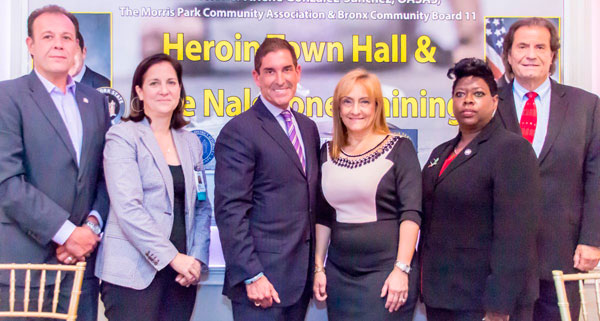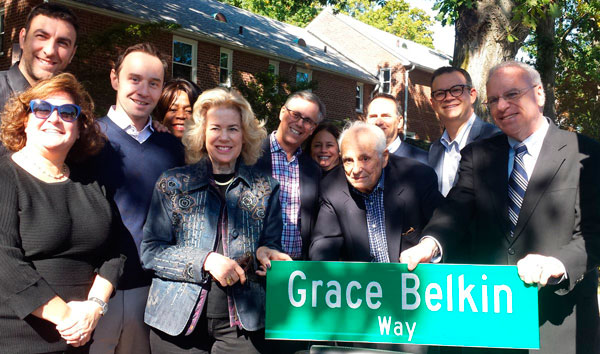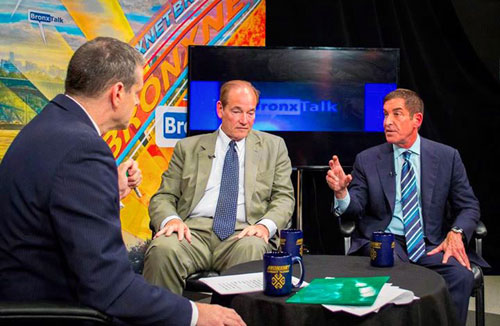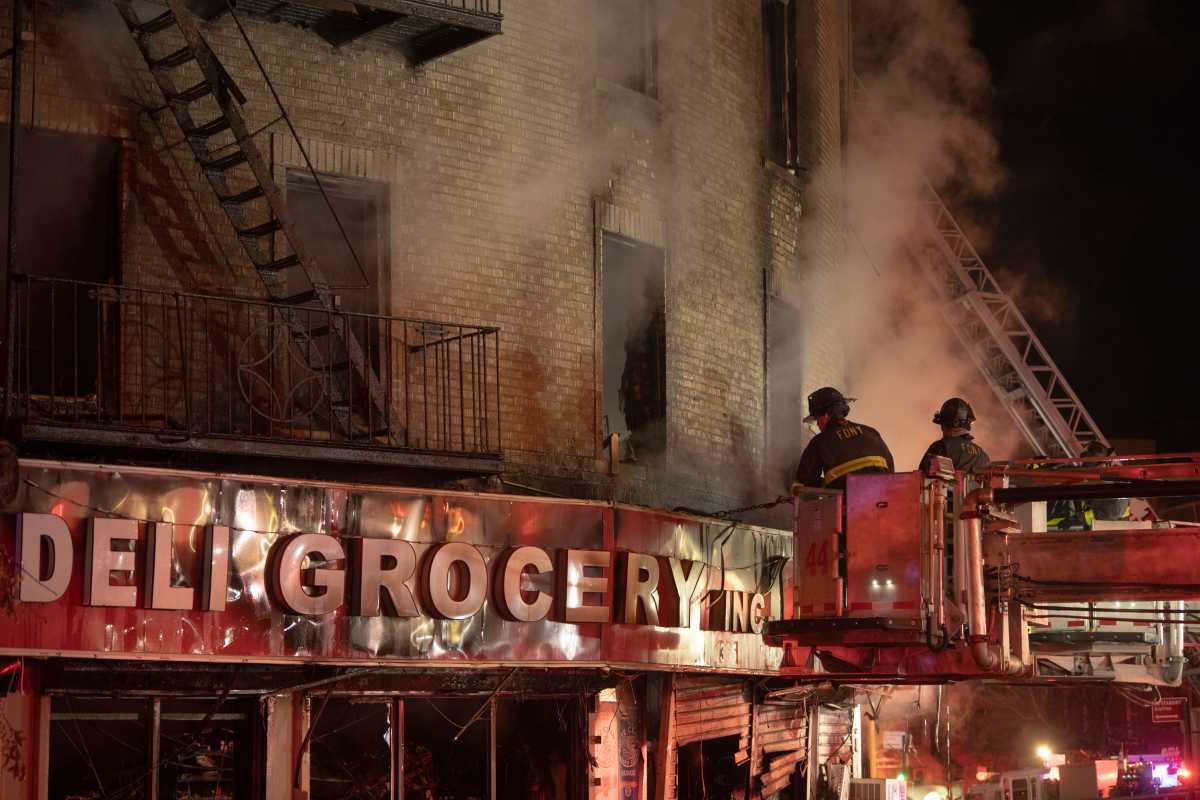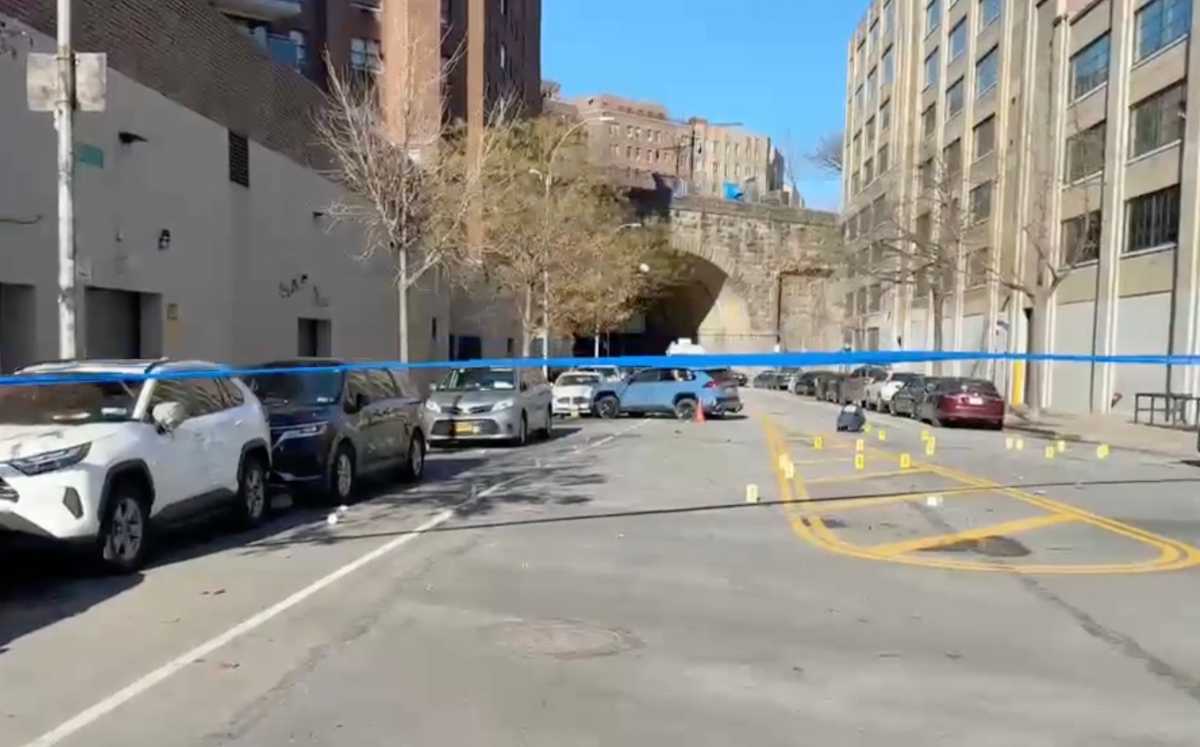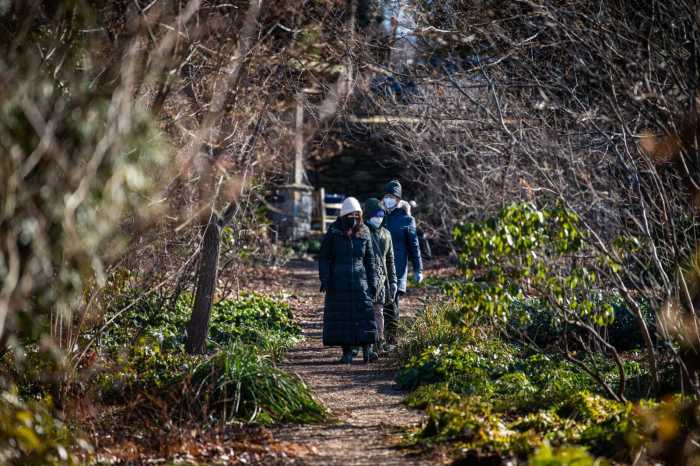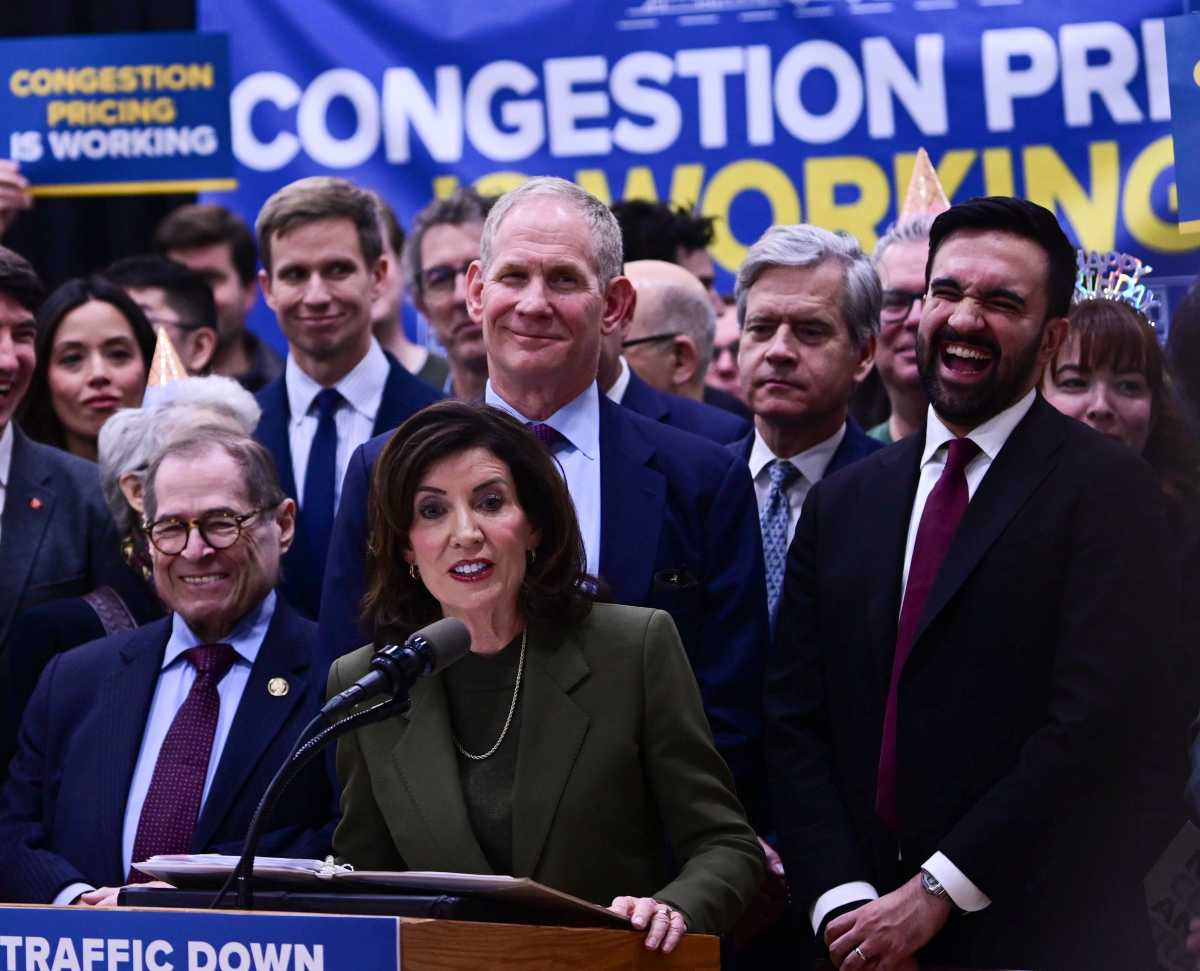Senator Jeff Klein and Assemblyman Mark Gjonaj held a Heroin Town Hall during which elected officials and experts informed residents on ways they can fight heroin addiction.
The Bronx recently became the borough with the most deaths due to heroin overdoses in New York City, said Klein.
He added, since 2015 the Bronx has had approximately 140 deaths from heroin overdoses – double the amount of Brooklyn, Manhattan and Queens.
The senator said he has received notices of concern from members of the community, including the Morris Park Association which helped sponsor the event.
During the past few months there have been three heroin-related overdose deaths in Loretto Park, located in Morris Park.
Klein discussed during the town hall the state official’s approach to New York’s heroin epidemic.
Earlier this summer, Gov. Cuomo approved a bill that allocated $180 million towards a comprehensive heroin treatment program.
The program is working to make sure there is more compliance from insurance companies so those companies don’t make it hard for addicts to receive treatment.
For example, the new legislations calls for insurance companies to conduct a utilization review only after 14 days of treatment for the patient.
In addition, insurance companies cannot request a review before the patient receives medication necessary for things such as withdrawal symptoms or standard treatment.
Klein said officials “want to let people understand that truly we have a comprehensive approach and that help is on the way.”
Assemblyman Gjonaj stressed with the parents in the audience that they play a vital role in keeping their kids from abusing drugs and alcohol.
He even suggested parents drug test their own kids, adding tests are inexpensive and can be bought from local drug stores.
“These children are using heroin as early as 12-years old,” stressed Gjonaj. “Please don’t be fooled.”
Both Klein and Gjonaj said heroin addiction does not chose a specific socioeconomic status, race, sexual orientation or age.
Gjonaj also warned parents who say “not my kid” and believe their child is above heroin addiction.
He added even if their child was taught not to use drugs, peer pressure can be a “scary” persuader towards drug use.
Arlene Gonzalez-Sanchez, commissioner for the NYS Office of Alcoholism and Substance Abuse Services, said OASAS is one of the largest treatment centers in the state.
The office has 1,600 providers and has 100,000 patients “in any one day,” according to Gonzalez-Sanchez.
In the Bronx, the commissioner said there are 65 treatment programs.
The treatment, said Gonzalez-Sanchez, is called medication-assisted treatment and treats approximately 11,000 Bronxites each day.
Sanchez said the state has also started an anti-heroin campaign, which has already installed a billboard on 167th Street to promote the fight against heroin addiction.
Sanchez added that even though the night’s discussion was on heroin the OASAS is dedicated to treating all types of substance abuse.
District Attorney Darcel D. Clark said she has been to other parts of the state where officials are claiming the heroin in their communities is coming from the Bronx.
Clark said the Bronx does not want that reputation.
She pleaded with those in attendance, stressing “everyone” knows the drug dealer on the street and the community should let the police know.
Clark also addressed fears community members may have of retaliation from drug dealers.
She said the alternative to keeping quiet is that people will keep dying on the streets from heroin overdoses.
In addition to discussions on what the state is doing for heroin treatment, residents also learned what to do if they see someone overdosing on heroin.
The instructions were highlighted by a demonstration on how to administer Naloxone, the drug commonly used to reverse an overdose.
Once the training was completed attendees received a certificate of Naloxone training and their own package of the drug.

